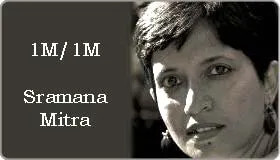
The media, when pitched a startup story, is interested in who funded the venture. They seldom ask how much revenue the company has or if it is profitable.
Incubators take pride in how exclusive they are and how many “deals” they “reject.”
Angels and VCs, of course, discard most of their “deal flow.”
And entrepreneurs? They seem to have confused the definition of entrepreneurship altogether. Entrepreneurship, they mistakenly believe, equals financing!
This is wrong.
There are numerous stories of successful businesses that have been built without a penny of outside financing. I want to share with you some wisdom from the heroes of the other 99%. They live in a world of entrepreneurs who enjoy their freedom and are not looking to sell their businesses or take them public. You could say these businesses are built-to-enjoy, as opposed to built-to-flip. Needless to say, outside financing, by definition, requires an “exit,” and for most businesses, that means a sale to a larger company.
But the entrepreneurs I will introduce you to today are not interested in selling their companies. They just want to continue doing what they are doing: building value.
Meet Girish Navani, CEO of eClinicalWorks, a super-successful healthcare IT company based in Boston. He has never taken any funding but has built a $100 million-plus business by delivering value to customers.
Girish says, “I don’t foresee leaving the company for at least 10 years. I would like to leave it a private company with no external investors and absolutely no thoughts whatsoever about Wall Street. I am having fun and take great pride in my freedom. There is no reason I would give that up. We are a cash flow positive company. We have recurring revenues and no debt. We have a large customer base that is growing exponentially.” [You can read Girish’s full story here.]
Meet Andrew Fox, CEO of ClubPlanet, a $30 million-plus nightclub ticketing services company that is also 100% founder-owned. Andrew loves nightlife and says, “The business is very successful and has a lot of room for growth. I think that we have a lot of suitors out there who mention really ridiculous numbers at times. This is such a great lifestyle business that I don’t know if I could ever sell it. All of my previous businesses I built to sell, but this time around you might find me right here in thirty years. I hope by then it is $300 million a year. Based on our growth trajectory, we are seeing really good signs of improvement. [You can read more of Andrew’s story here.]
Then there is the oft-cited Sridhar Vembu, who has turned all tables with Zoho, a $100 million-plus SaaS company that competes with Google, Microsoft, and Salesforce.com without a penny in outside capital.
I have had numerous conversations with Sridhar over the years, and each time he reinforces the same basic philosophy: “I want to build this without outside capital. I don’t want to sell the company.” [You can learn more about Sridhar’s methods here.]
Each of these entrepreneurs could raise money in a nanosecond given how much success they’ve had. The fact that they don’t gives you an idea about the advantages of the self-financed, organic growth model. No matter how much Wall Street gyrates, these entrepreneurs experience and demonstrate a level of stability and steadiness that is exemplary.
Imagine if the American economy had many more such steady private companies that are far removed from the movements of the speculative markets, how much more robust things would be? It really is time that the media starts celebrating more of these kinds of heroes: the other 99%.
And for young entrepreneurs, as you evaluate role models to emulate, perhaps it is not a bad idea to also consider some of these lesser-known heroes. They can give you a picture of the realities of an alternate, deeply satisfying universe.
In conclusion, I want to leave you with a 1:49 minute video message. Please listen to it, and stop for a moment to think about your path forward. Is a single-minded focus on fund-raising your only option?






